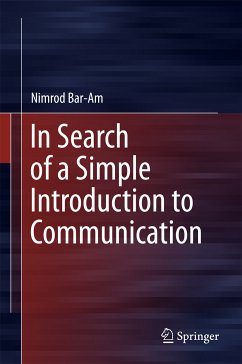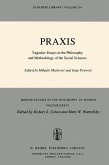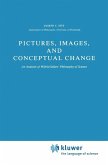Communication schools promise their students an understanding of the source of a principal and dynamical power in their lives, a power shaping societies and identities, molding aspirations, and deciding their fates. They also promise students a practical benefit, a chance to learn the secret of controlling that dynamical power, improving a set of skills that would ensure thema critical edge in the future job market: become better media experts for all media. Yet no one seems to know how such promises are met. Can there be a general theory of communication? If not, what can (should) communication students learn? This book looks at the problem from a philosophical perspective and proposes a framework wherein critical cases can be tested.
Dieser Download kann aus rechtlichen Gründen nur mit Rechnungsadresse in A, B, BG, CY, CZ, D, DK, EW, E, FIN, F, GR, HR, H, IRL, I, LT, L, LR, M, NL, PL, P, R, S, SLO, SK ausgeliefert werden.
Hinweis: Dieser Artikel kann nur an eine deutsche Lieferadresse ausgeliefert werden.









